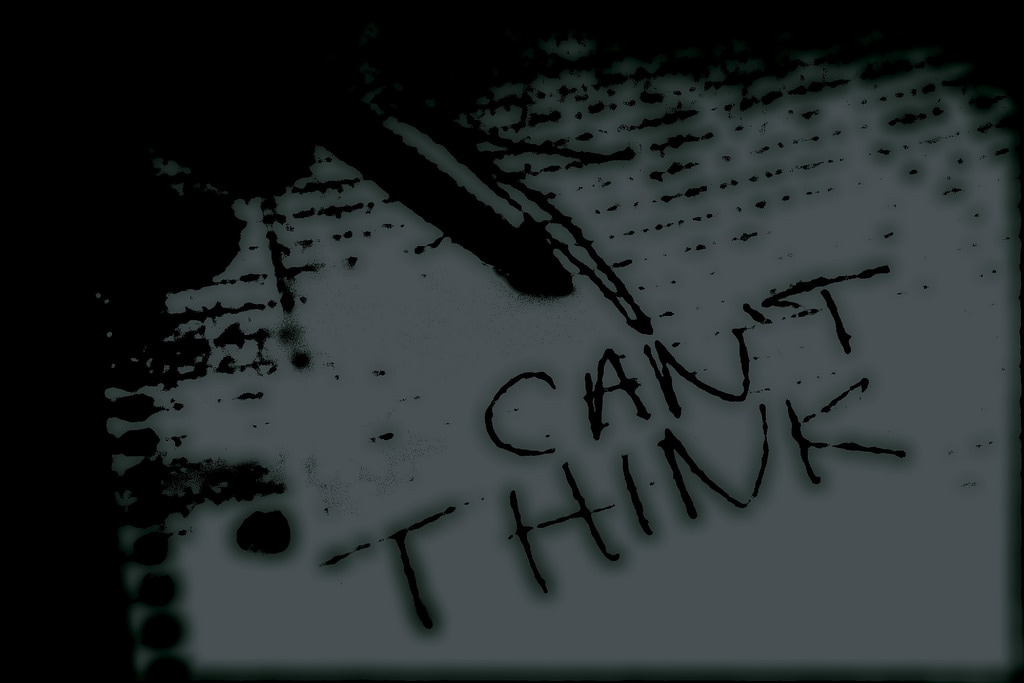|
Most authors, perhaps all authors, work in fear of writer’s block – that horrible time when your ideas stop, and your prose feels flat and lifeless. You experience less joy in writing and it seems as though your imagination has dried up – you struggle to form pictures in your mind, and when you do those pictures lack sparkle and originality. Having completed four novels, I talk from experience of this subject, and so I thought I'd share a few observations about writer's block and hopefully offer a few possible cures. What causes writer’s block? I guess there are many causes, but some of the most common are: Fear It’s hard to put your work out there for everyone to read. Writing expresses something of your inner self: your fears, your desires, your worldview. This can make you feel vulnerable, worried about how people will react when they read your book. Writing a book is deeply personal and when someone criticizes your work, it is easy to frame it as criticism of you as a person. A natural defence mechanism quicks in and the thought of writing something, let alone sharing it, becomes a huge barrier to creativity. Perfectionism This is linked to fear. You worry any prose less than perfect will expose you to scorn and criticism. To protect yourself, everything has to be right, everything has to be perfect. But this becomes a trap, a trap that prevents you from expressing yourself, a trap that locks-in your creativity. Outside pressure No one can write in a vacuum and other factors understandably have an impact: family commitments, work pressures, illnesses. All these (and many others) can reduce the amount of time and energy you have for writing. Writing a novel demands concentration and imagination over an extended period of time, and working with outside pressures pounding down upon you can make the whole project seem overwhelming, even impossible. So, those are the causes of writer’s block, but what are the cures? Based on my experience, I would suggest the following: Get moving Writer’s block saps your energy and imagination. So, to push through, you might need to take a break and leave your story for a while. If you can, go for a walk; I find this helps me tremendously, as the motion of walking frees my mind. Don’t put undue pressure on yourself. Creating a novel is a long game, so if you are really struggling, taking a few hours or a day of your writing schedule will not be a disaster; indeed, a chance to refresh and rethink should spark your imagination and allow you to see solutions hitherto hidden. Hit the library This is one of my main weapons of choice for breaking writer’s block! Researching your book on the internet is fine, but nothing beats an hour in the library. My advice: don’t look for anything specific, just let your mind wander and I guarantee you’ll find books of interest. Trust me, as you read, as you explore, new ideas and perspectives will emerge, which in turn can generate solutions. And I find just being in the library a relaxing experience, as though sitting among hundreds, thousands of other books brings home to me how much I really want to write, and that the effort (and pain!) of creation is worthwhile. In addition to the library, I also find that visiting art galleries and museums really sparks my imagination. I always discover new things, new ideas, and some of these inevitably end up influencing my book. When writing This Sacred Isle, trips to the British Museum, Tate Britain, Fitzwilliam Museum and many others gave me considerable inspiration to keep going, to keep creating, to keep making the story better and better. After visiting such places, I can’t wait to get writing as soon as I get home! Interrogate your story
Ask questions about your story, challenge elements you have long decided upon – characters, events, themes, imagery. What if a character says or does something different? Consider the impact if you turned your plot around – it doesn’t mean you have to change lots of things about your book, it will just provide some insights into the structure of your story and the characters within. In This Sacred Isle, the character of Lailoken was originally in the novel for much longer, but as developed further drafts of the book I struggled to see how he could contribute meaningfully to the story. On an early edit, I took some time to ask myself some key questions about his character – I realised that as well as being a mentor of sorts to Morcar, and a supplier of crucial exposition about the dragon Athanor, Lailoken represented a fearful reaction to the growing evil of Merlin, a reaction of hiding and isolation. Lailoken encourages Morcar to behave in the same manner, and it is Morcar’s determination to face evil, not to flee even when all seems hopeless, that drives the last act of the story. Drop the scene and move on If a scene is just too damned difficult to write, it probably means it's never going to work – at this point, rather than invest time and energy in fruitlessly making the scene work, I’d suggest you move on and devise another way to progress the plot. Don’t beat yourself up about it. Allow yourself to fail sometimes; expect to fail and learn from it. When I was writing The Map of the Known World, there was a I was pleased with, but when I read through the story it slowed the pace. I spent several days reworking the chapter, getting increasingly frustrated, nothing I did seemed to improve the situation. Eventually (out of near desperation!) I decided to try seeing how the story worked without the chapter – to my surprise, the sense of tension was enhanced. It was painful to make the cut (I had really enjoyed working on those particular scenes) but the book was better paced by removing the chapter and reshaping some plot points. Just write – anything! This is perhaps the most important cure of all. Just write something, anything and see where it goes. Don’t overthink, don’t seek perfection, don’t think long term. Write without the pressure of having to deliver something memorable – just write for the joy of writing. Of course, much of what you write will not appear in your final book, but you’ll unearth some nuggets and this will boost both your confidence and enjoyment. And finally, what not to do… Don’t just wait for inspiration to strike before writing. If you don't writing, inspiration will never strike, simple as that! All writers hit blocks, it’s inevitable and all part of the ongoing learning process. But you can push through and you’ll be a better writer when you do. How do you combat writer's block? Add a comment and join the conversation.
6 Comments
Steven Smith
7/2/2017 07:31:21 pm
Writer's block is tough, but the important thing is you got through it - well done!
Reply
Steven Smith
9/2/2017 07:14:54 pm
I agree, Lindsay - I think sometimes it's the only way forward.
Reply
Leave a Reply. |
Archives
October 2023
Categories
All
|


 RSS Feed
RSS Feed